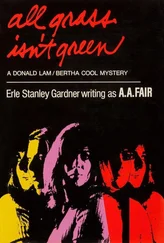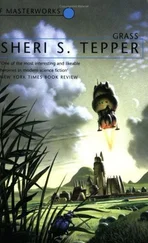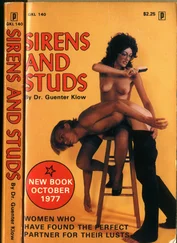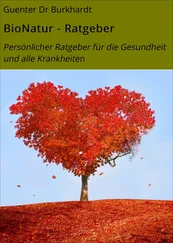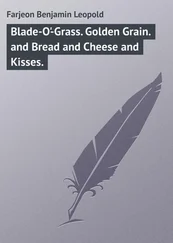This time pictures dominated the site. In fairly grainy reproduction but captioned in bold letters, the towering block of granite presented itself for the whole world to admire, with the name of the martyr chiseled into the rock beneath the jagged S-shaped rune for victory. The martyr's importance was illustrated by means of a chronology, a list of his organizational accomplishments, testimonials embellished with exclamation points, all incorporated into the ongoing project, leading up to the day and hour of his murder in the famous health resort for tuberculosis sufferers, Davos.
As if on command or under some other compulsion, David spoke up. Initially his topic was not the monument but the martyr's murderer. David announced triumphantly that in March 1945 things took a positive turn for David Frankfurter, incarcerated for over nine years by then. After a futile attempt to have his case reopened, the Berne attorneys Brunschwig and Raas submitted a petition for clemency, addressed to the Graubünden parliament. My son's adversary had to concede that the request for reducing the eighteen-year sentence to time served was not granted until 1 June 1945, in other words, after the war was over. He explained that the decision had to wait until Switzerland's grandiose neighbor was brought to its knees. Because David Frankfurter was expelled from Switzerland after his release, he decided to go straight from the looms of Sennhof Prison to Palestine, hoping for a future Israel.
On this topic the sniping between the two grim online opponents remained fairly moderate. Konny conceded generously, “Israel is okay. It was the perfect place for that murdering Jew. He could make himself useful, on a kibbutz or something.” All in all, he had nothing against Israel. He even admired the toughness of its army. And he completely supported the Israelis' determination to take a hard line. They had no other choice. When dealing with Palestinians and such Muslims, you couldn't give an inch. Sure, if all the Jews would just pack up and move to the Promised Land, like that murdering Jew Frankfurter, he would be all for it: “Then the rest of the world would be Jew-free!”
David accepted this horrendous notion; he agreed with my son in theory. Apparently he was worried: as far as the safety of the Jewish citizens of Germany was concerned — and he included himself among them — he feared the worst; anti-Semitism was increasing by leaps and bounds. Once again one had to think about leaving the country. “I, too, will be packing my bags soon…” Whereupon Konny wished him “Bon voyage” but then hinted that it would give him pleasure if the occasion arose for him to meet his bosom enemy before the latter s departure — not just online: “We should get together, check each other out, preferably sooner rather than later…”
He even proposed a meeting place, but left the date for the desired rendezvous open. At the spot where the block of granite had towered above the others in the memorial grove, and where today hardly anything preserved the memory of the martyr, because desecrators had cleared away the rock and the hall of honor — in that very place where, in the not-too-distant future, a stone monument would have to be erected once more, in that historically meaningful place they should meet.
The sniping promptly resumed. David favored a meeting anywhere but in that accursed location. “I absolutely reject your historical revisionism…” My son added his own fuel to the fire: “He who forgets his peoples past is not worthy of it!” David agreed with that. What followed was sheer silliness. They even allowed themselves to make jokes. To one of them — ”What's the difference between e-mail and Emil?” — I unfortunately did not get the punch line. I logged out too soon.
I've been there numerous times. Most recently a few weeks back, as if I were the perpetrator, as if I had to keep returning to the scene of the crime, as if the father were running after the son.
From Mölln, where neither Gabi nor I could find much to say to each other, to Ratzeburg. From there I drove east, passing through Mustin, a tiny village just beyond which the border had been located, complete with death strip, cutting off the highway. One still sees a three-hundred-meter gap in the chestnuts planted long ago on either side of the road: not a tree to right or left. The place gives one a feel for the multitiered efforts the Workers' and Peasants' State undertook to secure its people.
Once I left that scar in the landscape behind me, Mecklenburg's sweeping farmland extended all the way to the horizon on both sides of the once more tree-lined highway. Hardly any undulations, few larger stands of trees. On the outskirts of Gadebusch I took the new bypass. A strip of home improvement stores, shopping centers, flat-roofed auto dealerships, trying with strings of drooping pennants to revive business. The Wild East! Not until close to Schwerin, where the road was now lined with smaller varieties of trees, did the area become hilly. I drove past larger wooded stretches, the radio tuned to channel 3: the classical request program.
I then turned right onto Route 106, toward Ludwigslust, and was soon approaching the Grosser Dreesch housing complex, thrown up in several stages and once home to fifty thousand citizens of the GDR, and parked my Mazda by unit 3, right next to the Lenin monument in the curve at the end of Gagarinstrasse. The weather held; it didn't rain. Now renovated and made presentable with pastel colors, the apartment buildings lined up in a row.
Every time I visit Mother, I am amazed that this bronze statue, which grew so large under the hands of its Estonian creator, is still standing. Although Lenin is gazing westward, he was denied any gesture that might indicate a destination. With both hands in his coat pockets, he stands there like a man out for a stroll who is allowing himself to take a breather, his feet resting on the low granite platform that forms a pedestal. The left corner of its lowest step is clad in bronze. The inscription molded into the metal in capital letters recalls a revolutionary resolution: the land reform decree. Only on the front does Lenin's overcoat reveal traces of color from some meaningless spray-can graffiti. Pigeon droppings on the shoulders. His wrinkled trousers have remained clean.
I did not linger on Gagarinstrasse. Mother lives on the eleventh floor, with a balcony and a view of the nearby broadcast tower. She insisted on serving me coffee, which she always makes too strong. After the renovation of the concrete-slab buildings, the rents were raised — to manageable levels, Mother thinks. We talked about that, only that. Otherwise there was not much to say. She did not ask what had brought me to the city of many lakes, besides my brief visit to her: “Certainly not the Führers birthday!” The date of my arrival must have given my destination away; she exclaimed as I entered her apartment — and after I had denied myself a glance into Konnys room: “What's there for you? Nothing to be done about it now.”
Taking Hamburger Allee, formerly Lenin-Allee, I drove in the direction of the zoo, then along Am Hexenberg, and parked by the youth hostel, having found my way to the spot as if in a trance. Around the back of the gray stuccoed structure from the early fifties, the wooded bank on the southern end of Lake Schwerin falls off steeply. Down below, almost at the waters edge, you see Franzosenweg, a favorite path for walkers and bicycle riders.
A sunny day by now. Actually not typical April weather. When the sun came out, it had real warmth. At a slight distance from the entrance to the youth hostel, the moss-covered blocks of granite still lay motionless, as though nothing had happened, remnants of the memorial grove that had been cleared away, not very thoroughly, decades earlier. Among the trees once planted to form the grove, scanty underbrush. The square foundation of the hall of honor was easy to make out, because only a little dirt had been dumped over it, but the youth hostel faced the site, obstructing any sense of the original layout. To the left of the hostel's entrance, above which one could read in raised lettering the name of the hostel, “Kurt Bürger,” a Ping-Pong table on sawhorses was waiting for players. A sign on the door hung slightly crooked: CLOSED FROM 9 AM TO 4 PM.
Читать дальше

